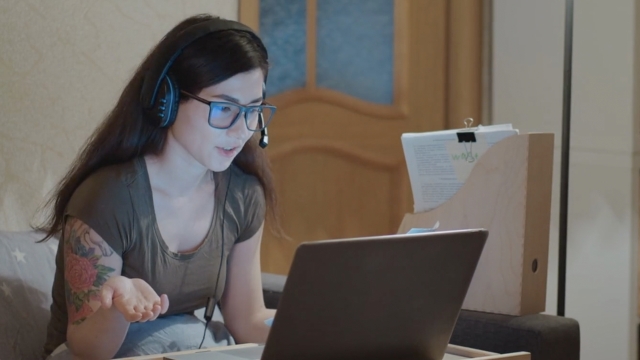Researchers call it "power in proximity."
"In person is better for collaboration, is better for creativity," said Bob Pozen, author and senior lecturer at MIT Sloan School of Management.
Economists from the Federal Reserve Bank of New York paired up with researchers from the University of Iowa and Harvard to study software engineers at an unnamed "Fortune 500" firm.
They chose software engineers, because feedback is vital for improving programs and writing better code in the future.
"It is pretty normal and regular to have code reviews in person, sitting side by side with the senior engineer and just giving direct feedback even for a small question," said Ken Liu, a senior software engineer at Creospan.
Before the pandemic, researchers found engineers in the same building as their supervisors received 21% more comments on their programs than those working in other buildings.
But once the pandemic shuttered offices, feedback drastically shrank even more, suggesting that proximity played a role.
Researchers say online tools like Slack and Zoom complement in-person interactions, but they aren’t a replacement for the mentorship and training that young workers get in the office, at least in this type of work.
"You might not want to interrupt your senior engineer if, like you’re remote and you're like, I don't know what their schedule's like, or maybe I do and I just have a call now after that call, for example, versus I could just pop over that person's desk," Liu said.
The "power in proximity" paper calls hybrid models into question, finding that if just one person was remote, the entire team operated as it was remote, affecting feedback for everyone.
SEE MORE: The gig marketplace growing with opportunities to make money remotely
"You can try to replicate that using Zoom and other tools. But it's pretty difficult to kind of mimic body language and just kind of getting the feel for that," Liu said.
The paper also found women and younger workers were most likely to feel the negative effects of remote work.
Employees under 30 got much more feedback than their older peers – but only while working in the same building, not at home. And women, especially the junior employees, saw an even bigger drop in feedback once offices closed. This problem isn’t unique to the tech field.
Pozen says a lot of remote workers risk being out of sight and out of mind.
"They don't have these chance meetings with people outside their unit ... They aren't learning informally about opportunities in their industry that are rising," Pozen said.
The lack of mentorship could also hurt a business' bottom line, as the paper found a decline in feedback made remote employees more likely to quit.
To boost efficiency, the economists recommend teams be either fully remote or fully in person
But, Pozen says, the success of remote workers is dependent on good management and figuring out the best model for productivity and learning.
"What's critical is that you be in the office a few days a week, talk to them about what are their career aspirations and how can we achieve them together," Pozen said.
Pozen adds collaboration, coordination and fostering company culture are all possible — no matter where the workers are.
Trending stories at Scrippsnews.com



